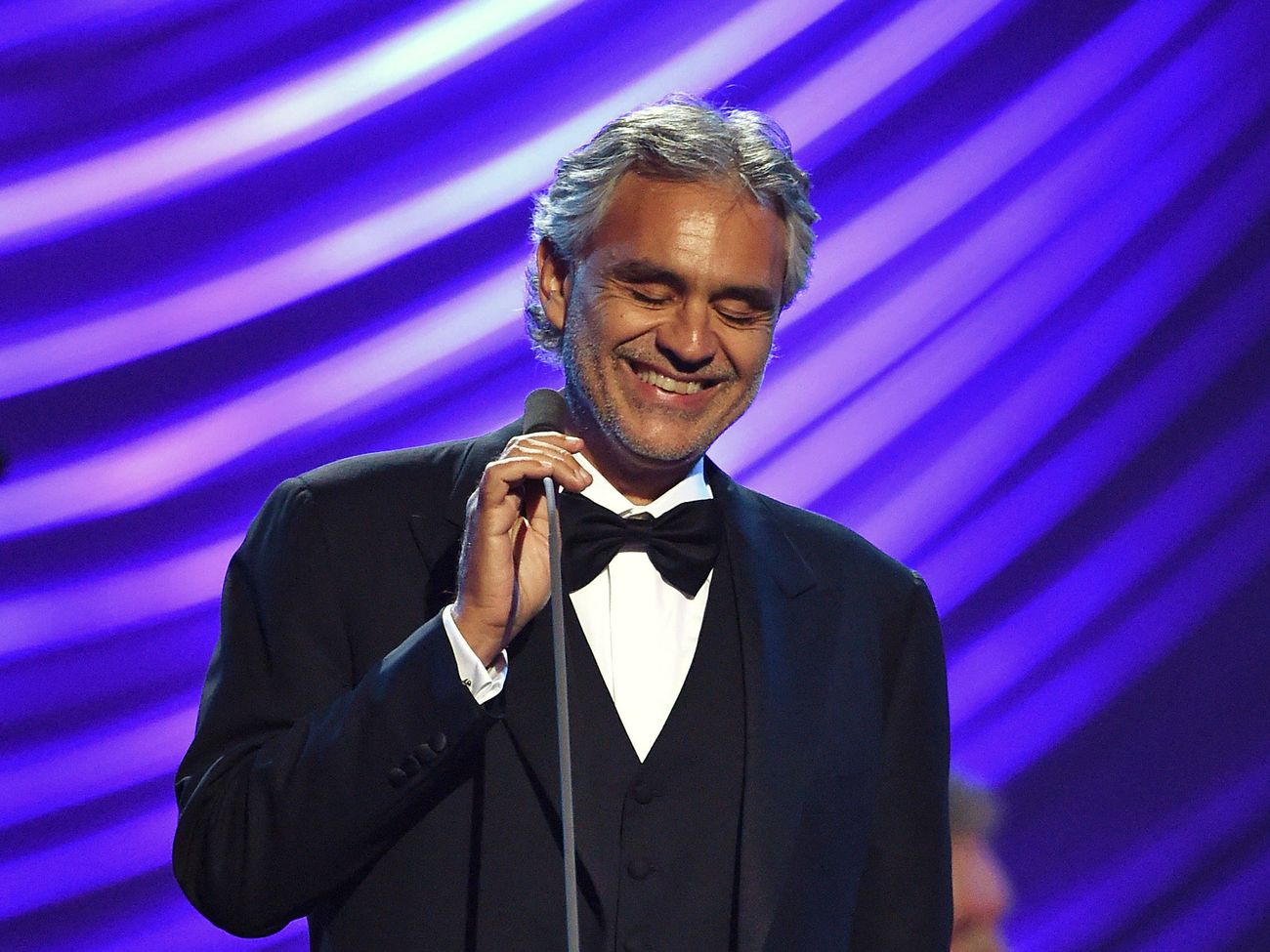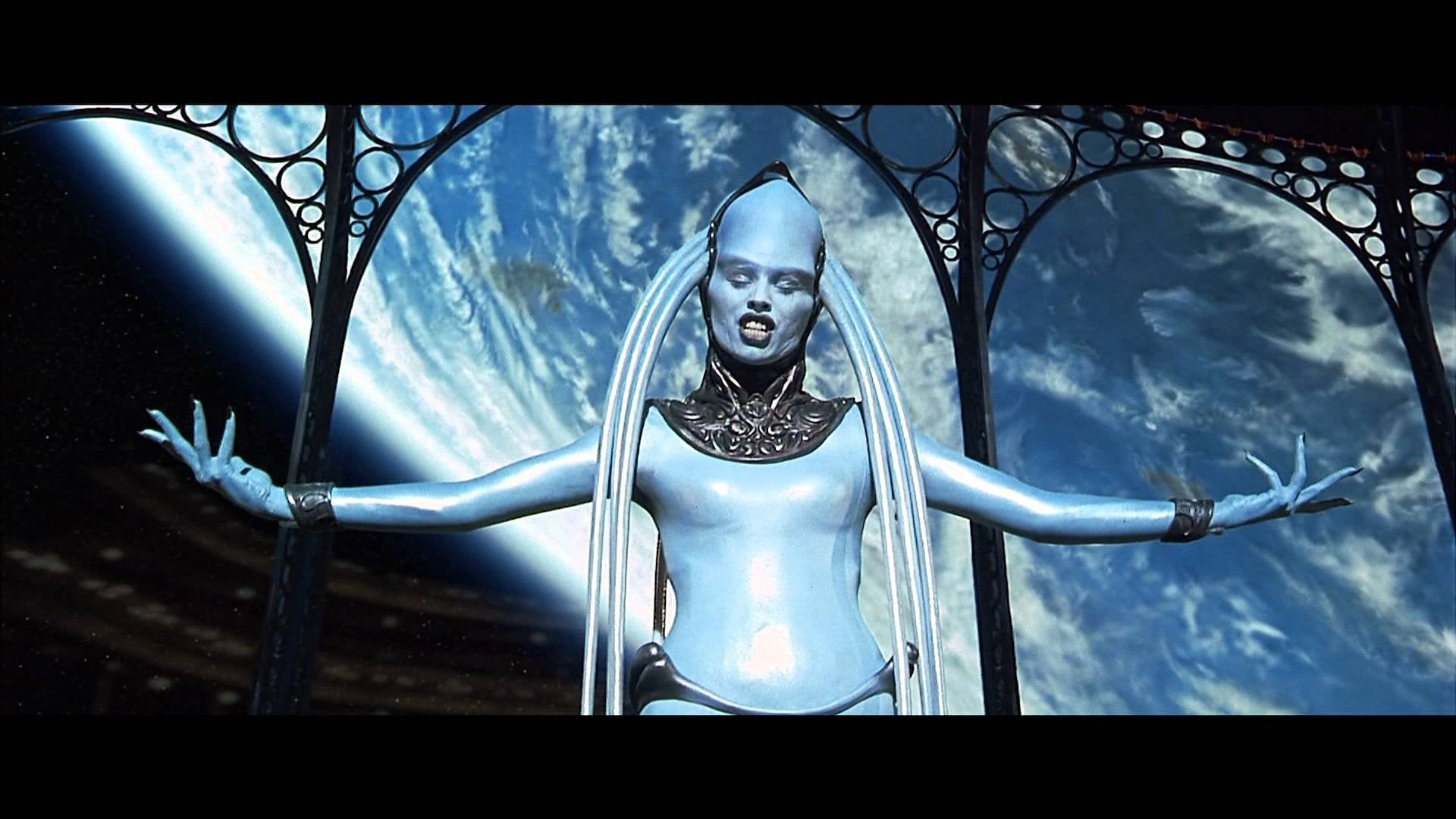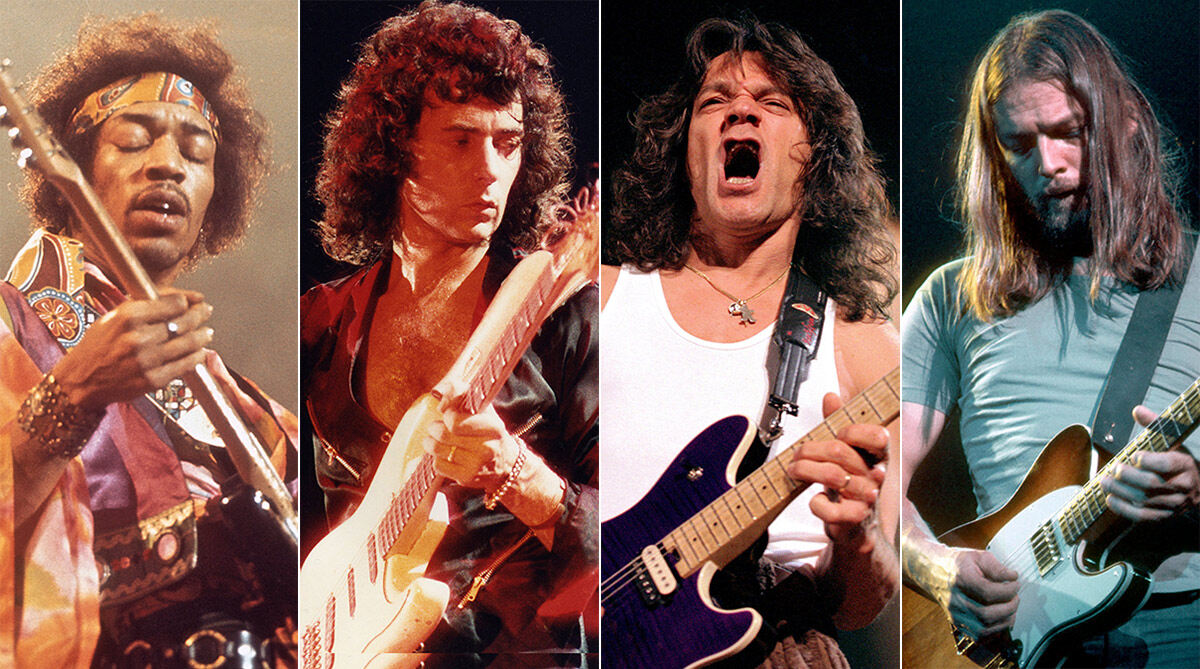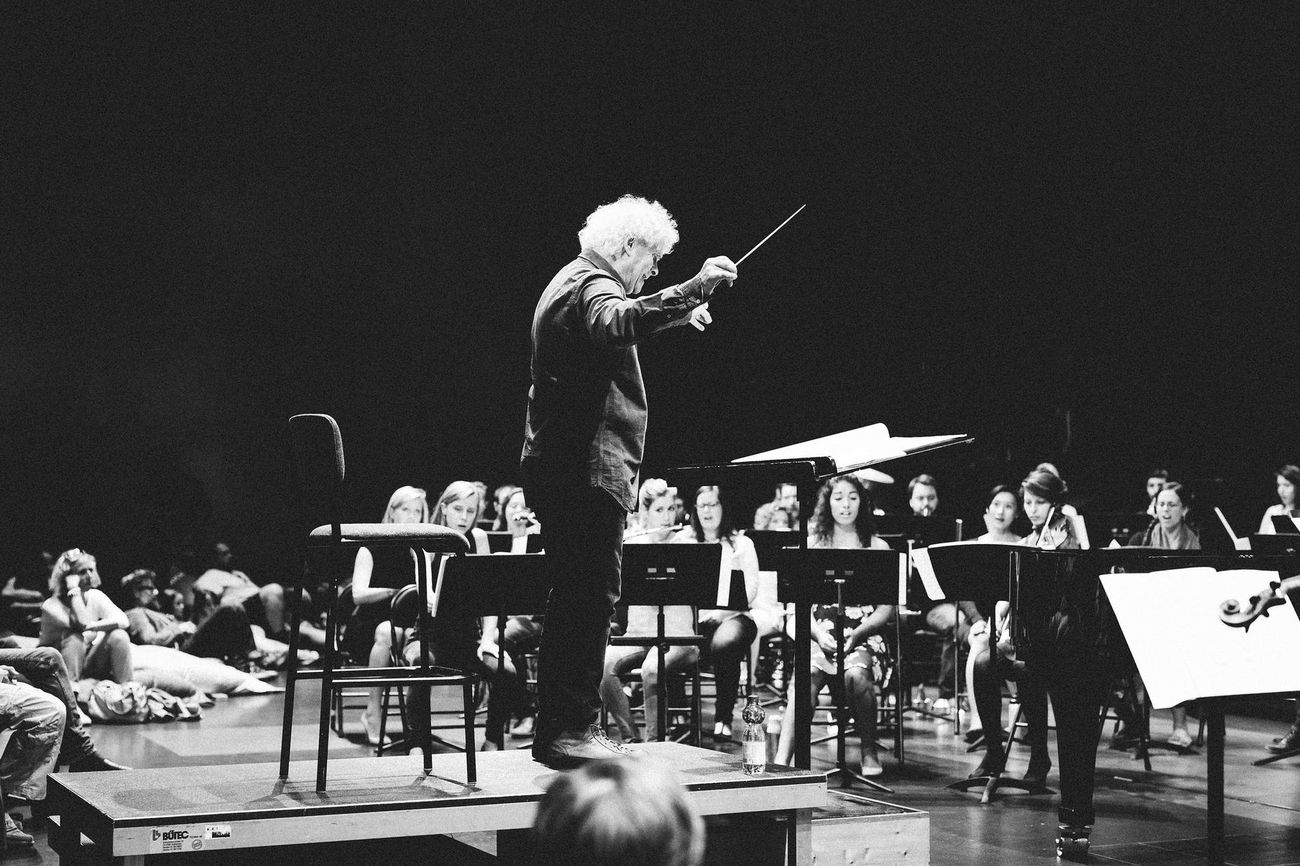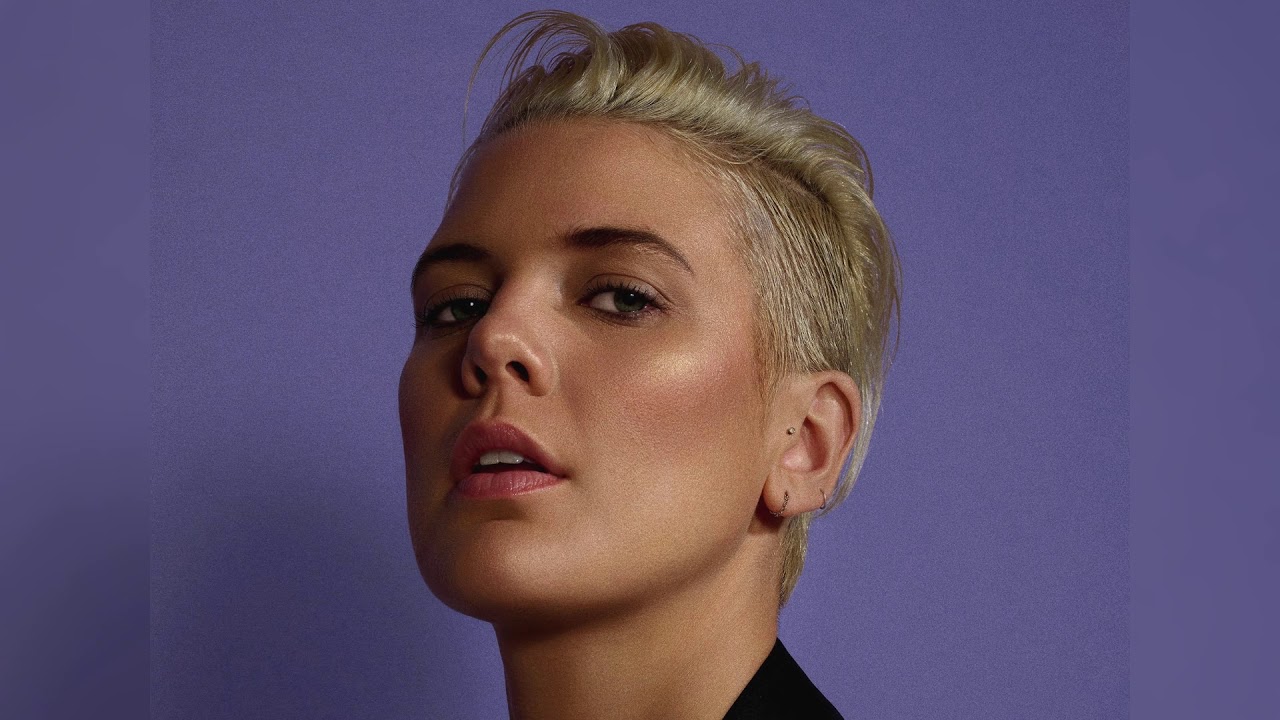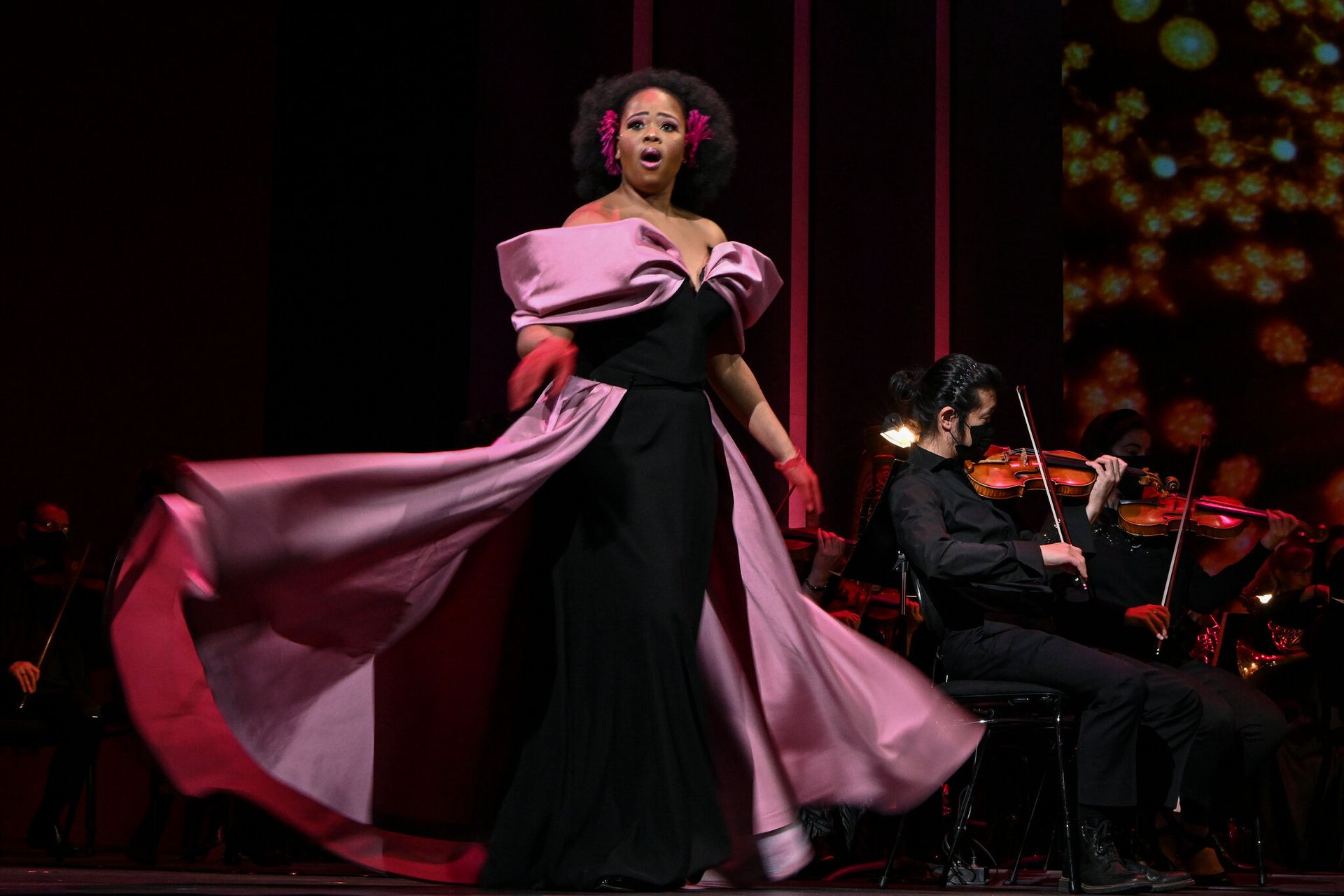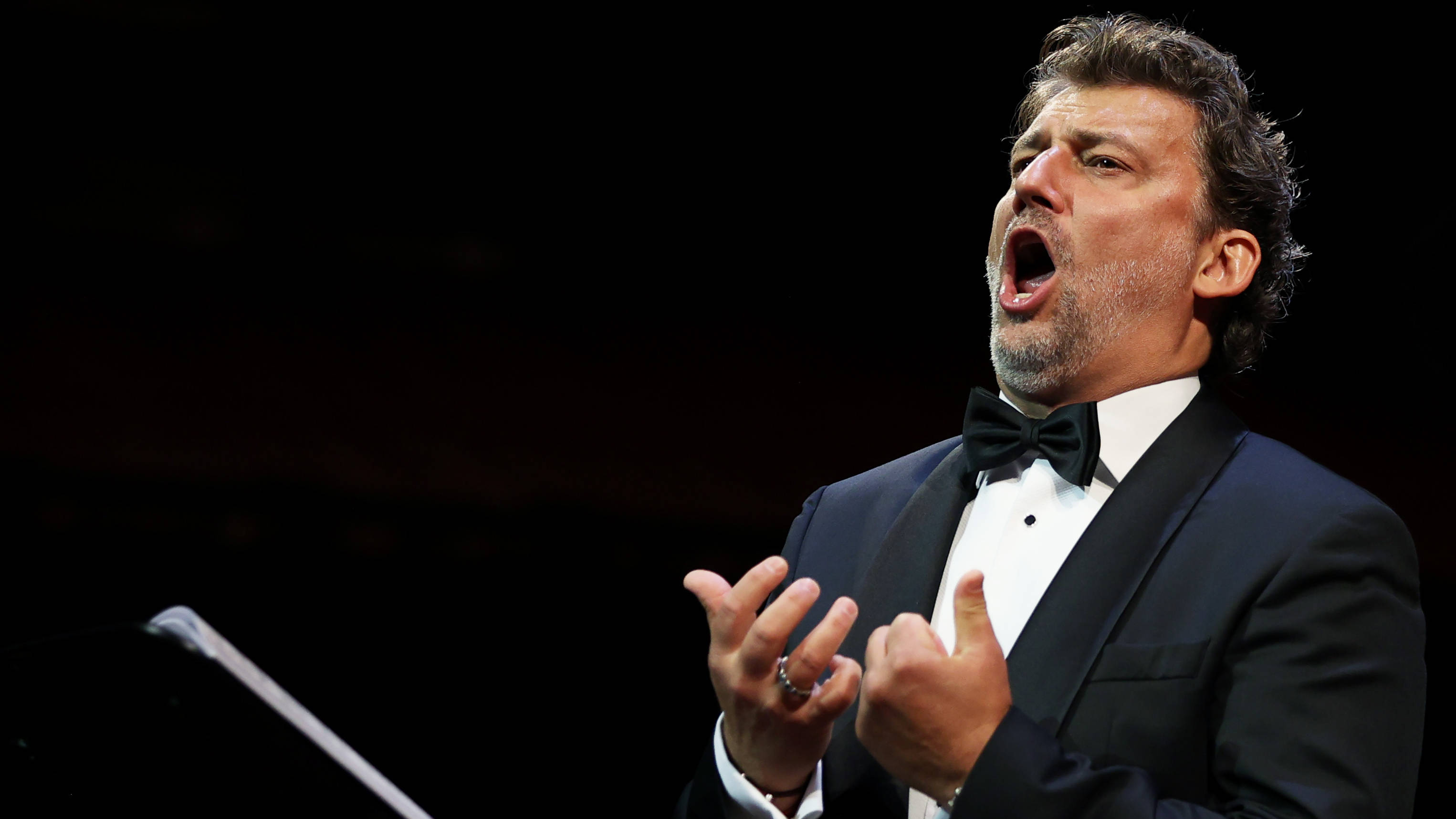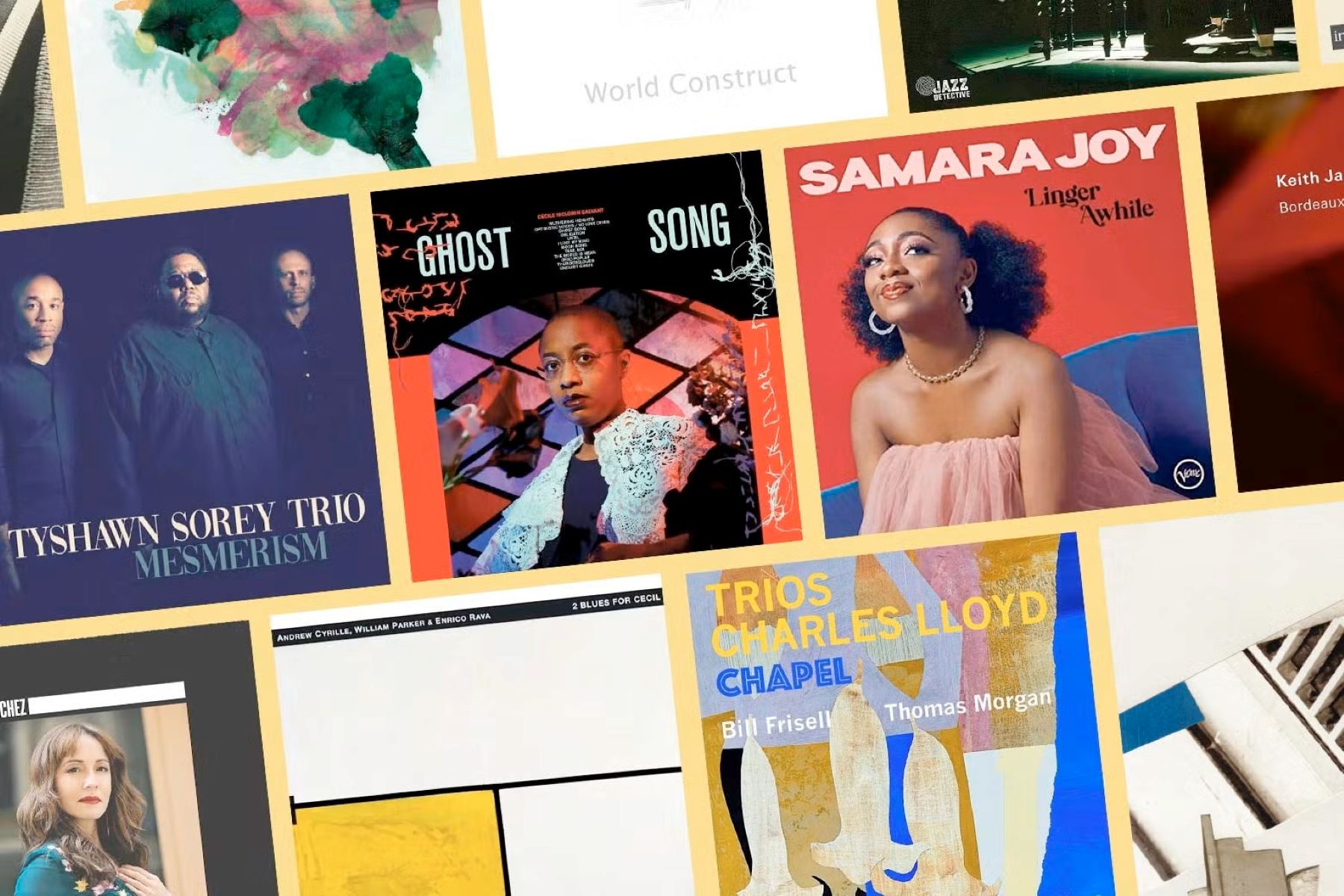Home>Events & Info>Opera>Who Is The Best Opera Singer Of All Time
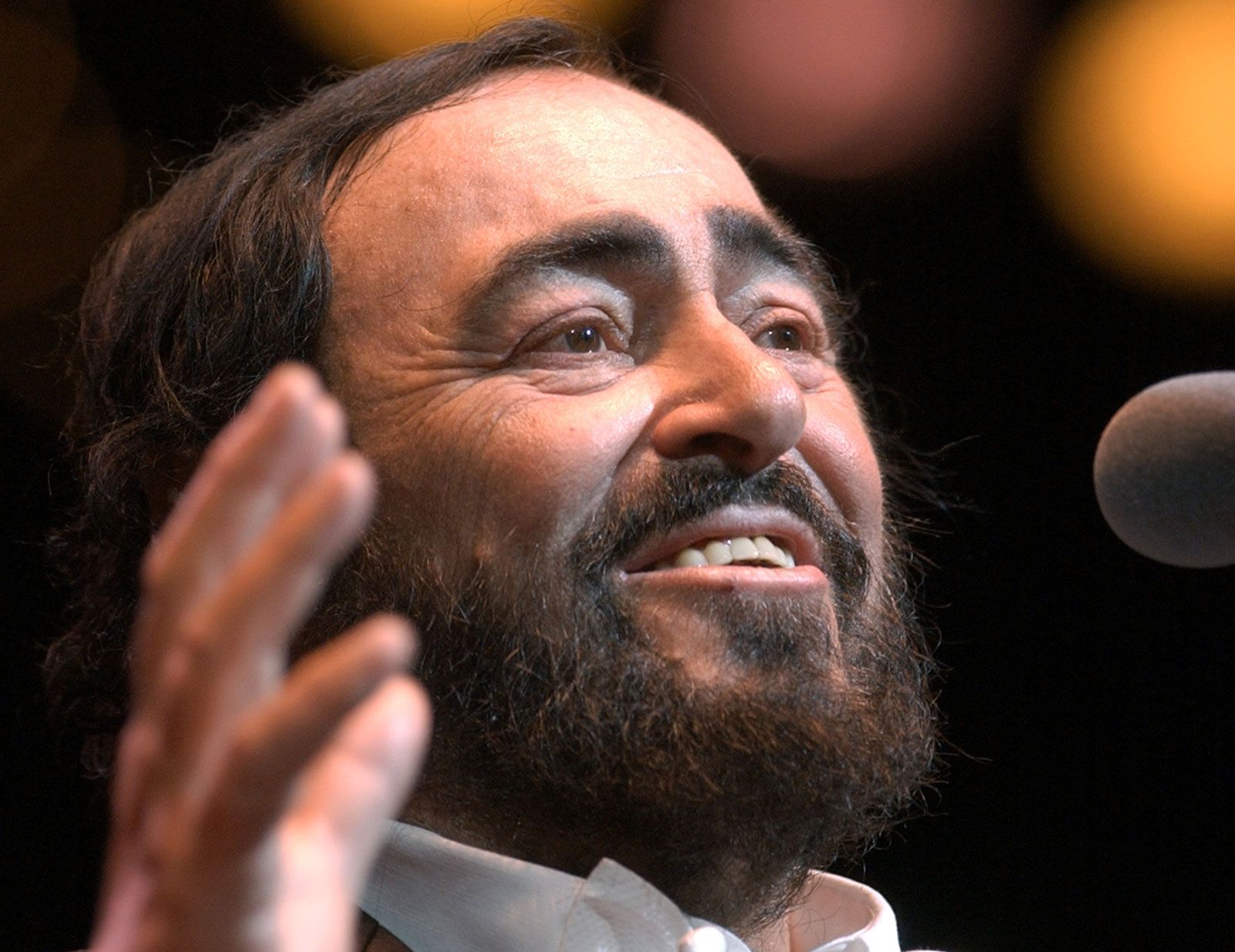

Opera
Who Is The Best Opera Singer Of All Time
Modified: January 22, 2024
Discover the greatest opera singer of all time and explore the mesmerizing world of opera. Uncover the talent, passion, and excellence in the realm of opera music.
(Many of the links in this article redirect to a specific reviewed product. Your purchase of these products through affiliate links helps to generate commission for AudioLover.com, at no extra cost. Learn more)
Table of Contents
Introduction
Opera, with its grandeur, passion, and emotional intensity, has captivated audiences for centuries. Its ability to combine music, singing, drama, and visual spectacle makes it one of the most extraordinary forms of artistic expression. At the heart of every exceptional opera performance is a talented and skilled opera singer.
Throughout history, there have been numerous opera singers who have left an indelible mark on the world of classical music. These legendary performers have touched the hearts and souls of audiences with their powerful voices, impeccable technique, and profound interpretations of iconic roles.
In this article, we will delve into the lives and careers of some of the greatest opera singers of all time. From the divine soprano Maria Callas to the charismatic tenor Luciano Pavarotti, we will explore their unique styles, contributions to the opera world, and why they are revered by music enthusiasts worldwide.
So, sit back, relax, and prepare to be transported into the enchanting world of opera as we embark on a journey to discover the best opera singers of all time.
Maria Callas
Known as the “La Divina,” Maria Callas is often regarded as one of the greatest sopranos in opera history. Born in 1923 in New York City, Callas possessed a vocal range that was unmatched, from the richness of her lower register to the brilliance of her high notes.
Callas’s electrifying stage presence and intense acting skills brought her characters to life, making her performances unforgettable. Her voice had a unique timbre, with a distinct emotional quality that reflected the depth of her interpretations. Whether performing tragic heroines like Violetta in “La Traviata” or powerful mythological figures like Medea, Callas captivated audiences with her ability to embody the essence of each character.
In addition to her exceptional vocal talent, Callas was also a pioneer in vocal technique. She possessed remarkable agility and control, allowing her to execute intricate coloratura passages with precision. Her ability to infuse her singing with emotional depth and convey the human experience through her voice set her apart as a true artist.
Although her career was plagued with personal and professional challenges, Callas’s artistic legacy remains unparalleled. Her recordings continue to inspire singers and music lovers alike, and her impact on the opera world cannot be overstated. Maria Callas’s talent, passion, and dedication to her craft make her a shining star in the realm of opera and a true icon of the art form.
Through her recordings and live performances, Maria Callas has left an indelible mark on the opera world, cementing her place as one of the greatest singers of all time.
Luciano Pavarotti
When it comes to the world of opera, one name that immediately comes to mind is Luciano Pavarotti. Born in 1935 in Italy, Pavarotti possessed a remarkable tenor voice that was characterized by its warmth, power, and effortless high notes. His vibrant personality and charismatic stage presence only added to his appeal, making him not only a beloved opera singer but also a global icon.
Pavarotti’s voice had a distinctive quality that resonated with audiences across the globe. His ability to convey raw emotion and vulnerability through his singing was unparalleled, drawing listeners in and captivating them with every note. With a voice that effortlessly soared through the grandest of arias, Pavarotti earned the title of “King of the High Cs.”
Aside from his extraordinary vocal talent, Pavarotti was known for his generosity and passion for sharing opera with the world. He embraced collaborations with popular artists from different genres, leading to groundbreaking performances and collaborations that introduced opera to broader audiences. His “Three Tenors” concerts with Plácido Domingo and José Carreras became legendary, reaching millions of people worldwide.
Pavarotti’s commitment to using his platform for humanitarian causes further solidifies his legacy. He established the Pavarotti & Friends charity concerts, which raised millions of dollars for various charitable organizations. Pavarotti’s philanthropy, coupled with his remarkable talent, solidified him not only as an exceptional opera singer but also as a compassionate and giving individual.
Luciano Pavarotti’s impact on the world of opera is immeasurable. His voice, artistry, and ability to connect with audiences on a profound level have made him an icon that transcends the boundaries of classical music. Even after his passing in 2007, Pavarotti’s legacy continues to inspire and delight audiences, ensuring that his name will forever be synonymous with greatness in the realm of opera.
Enrico Caruso
Enrico Caruso, born in 1873 in Naples, Italy, was a legendary operatic tenor whose voice and technique set the standard for generations to come. Widely regarded as one of the greatest singers in the history of opera, Caruso’s vocal range, power, and emotional expressiveness made him an iconic figure in the early 20th century.
Caruso’s voice had a rich, dark timbre that was full-bodied and resonant, allowing him to effortlessly navigate the demanding repertoire of both Italian and international opera. His ability to convey the emotions of a character through his singing was remarkable, bringing his performances to life in a way that deeply touched audiences.
One of Caruso’s greatest contributions to the realm of opera was his pioneering use of the phonograph. He recorded extensively, leaving behind a vast legacy of recordings that showcased the depth and beauty of his voice. These recordings allowed his artistry to reach a wider audience, immortalizing his performances for future generations to enjoy.
Caruso’s stage presence was equally captivating. He possessed a natural charisma that drew people in, and his dynamic and nuanced portrayals created incredibly memorable experiences. Whether performing in grand opera houses or more intimate settings, Caruso captivated audiences with his commanding presence and captivating voice.
Throughout his career, Caruso worked alongside some of the greatest conductors and singers of his time, solidifying his status as a true legend in the opera world. He became synonymous with the roles he portrayed, such as Rodolfo in Puccini’s “La Bohème” and Canio in Leoncavallo’s “Pagliacci,” leaving an indelible mark on these iconic characters.
The legacy of Enrico Caruso continues to inspire aspiring opera singers and music enthusiasts alike. His unparalleled vocal talent, emotional depth, and captivating stage presence make him an everlasting icon in the world of opera. Although he passed away in 1921, Caruso’s voice lives on through his timeless recordings, ensuring that his artistry and contributions are cherished for generations to come.
Joan Sutherland
Dame Joan Sutherland, born in 1926 in Australia, is considered one of the greatest sopranos of the 20th century. Known for her incredible vocal range, agility, and stunning stage presence, Sutherland’s voice encompassed both power and flexibility, earning her the nickname “La Stupenda.”
Sutherland’s voice was marked by its purity, brightness, and remarkable ability to effortlessly navigate the challenging vocal acrobatics of bel canto repertoire. Her mastery of coloratura passages, combined with her impeccable control and precision, made her the ideal interpreter of the works of composers like Bellini, Rossini, and Donizetti. Her ability to sustain long, soaring phrases and hit high notes with ease captivated audiences around the world.
Aside from her extraordinary vocal abilities, Sutherland’s stage presence left a lasting impression. She possessed an innate understanding of the characters she portrayed, bringing depth and authenticity to her performances. Her charismatic and regal presence commanded attention, and her ability to convey the emotions of her characters drew audiences into the heart of the opera.
Sutherland’s international breakthrough came in 1959 when she performed the role of Lucia in Donizetti’s “Lucia di Lammermoor” at the Royal Opera House in London. Her stunning performance solidified her status as one of the finest sopranos of her time and propelled her onto the international stage.
Throughout her career, Sutherland collaborated with renowned conductors and singers, showcasing her versatility in a wide range of operatic roles. She conquered the great heroic heroines like Norma, and her interpretation of Handel’s “Alcina” showcased her mastery of Baroque repertoire.
Joan Sutherland’s contributions to the world of opera extend beyond her undeniable vocal talent. Her dedication to mentoring young singers through the establishment of the Joan Sutherland and Richard Bonynge Foundation further solidifies her status as a beloved figure in the opera world.
Even after her retirement from the stage, Joan Sutherland’s influence continues to be felt. Her legacy as one of the greatest sopranos of all time endures through her recordings and the memories of those fortunate enough to witness her stunning performances.
Plácido Domingo
Plácido Domingo, born in 1941 in Spain, is a true titan of the opera world. Renowned for his exceptional vocal abilities and versatility as a performer, Domingo’s career spans over five decades and encompasses a staggering number of roles.
Domingo’s voice, described as both powerful and velvety, has an incredible range that allows him to excel in a wide variety of repertoire. Whether performing as a tenor or as a baritone in later stages of his career, Domingo’s voice is characterized by its warm timbre, expressive lyricism, and impeccable phrasing.
Known for his captivating stage presence, Domingo has a natural charisma that captivates audiences. His ability to embody the characters he portrays, coupled with his emotional depth and dramatic intensity, have made him one of the most beloved and respected opera singers of all time.
One of Domingo’s enduring contributions to the world of opera is his dedication to expanding the audience for the art form. He has taken on numerous crossover projects, collaborating with artists from different genres, and performing in concerts and televised events that reach a broader audience. His efforts to popularize opera have helped bring the beauty and power of this art form to new generations.
Throughout his illustrious career, Domingo has performed in countless prestigious opera houses around the world. His partnership with fellow legendary tenor Luciano Pavarotti and conductor José Carreras in the “Three Tenors” concerts brought opera into the mainstream and introduced millions of people to the wonders of classical music.
Domingo’s work ethic and dedication to his craft are exemplary. Despite his age, he continues to perform and take on new challenges, showcasing his versatility and passion for opera. In addition to his singing career, Domingo has also taken on conducting and administrative roles within the opera industry, further adding to his legacy and impact on the art form.
Plácido Domingo’s contributions to the world of opera are immeasurable. His remarkable voice, magnetic stage presence, and tireless advocacy for the art form have made him a true legend. Domingo’s name has become synonymous with excellence, and his impact on the opera world will continue to be felt for generations to come.
Renée Fleming
Renée Fleming, born in 1959 in Pennsylvania, is one of the most celebrated sopranos of our time. With her radiant voice and versatile artistry, Fleming has captivated audiences with her stunning performances in both opera and concert settings.
Fleming possesses a voice of exceptional beauty and purity, characterized by its warm, velvety timbre and exquisitely controlled dynamics. Her ability to effortlessly float high notes, combined with her expressive phrasing and nuanced interpretations, has earned her critical acclaim and a devoted following around the world.
Known for her wide vocal range and versatility, Fleming has tackled a diverse repertoire that spans from Baroque to contemporary music. Her performances in iconic operatic roles like the Countess in Mozart’s “Le Nozze di Figaro” and the Marschallin in Richard Strauss’s “Der Rosenkavalier” have garnered widespread praise for her vocal mastery and sensitive portrayal of complex characters.
Not only does Fleming possess a remarkable vocal instrument, but she also possesses remarkable stage presence. Her captivating stage persona and vibrant acting skills bring depth and authenticity to her performances, creating a connection with audiences that goes beyond the music.
Throughout her career, Fleming has collaborated with leading conductors, composers, and opera houses. Her extensive discography includes award-winning recordings, showcasing her versatility across various musical genres.
Outside the opera world, Fleming has also ventured into other genres, including jazz, Broadway, and pop. Her collaborations with artists like Yo-Yo Ma and André Previn have further showcased her adaptability and artistry.
Renée Fleming’s impact on the opera world extends beyond her extraordinary vocal talent. She is a dedicated advocate for arts education and has actively championed initiatives to support young artists. Her commitment to nurturing and mentoring the next generation of singers further solidifies her legacy.
Renée Fleming’s remarkable talent, combined with her commitment to artistic excellence and education, has made her one of the most influential and beloved sopranos of our time. Her contributions to the opera world will continue to inspire and resonate with audiences for years to come.
Leontyne Price
Leontyne Price, born in 1927 in Mississippi, is widely regarded as one of the greatest sopranos in the history of opera. Her powerful voice, impeccable technique, and regal stage presence established her as a trailblazer and paved the way for future generations of African American opera singers.
Price’s voice was characterized by its richness, warmth, and extraordinary range. Her ability to effortlessly transition from the lower registers to radiant high notes was mesmerizing, leaving audiences in awe of her vocal prowess.
Price’s artistry extended beyond her exceptional vocal abilities. She brought depth, emotion, and authenticity to her roles, captivating audiences with her dramatic interpretations. Whether portraying tragic heroines like Aida or the enchanting Puccini heroines, Price’s performances were marked by their emotional impact and sheer brilliance.
Her career reached new heights with her debut at the Metropolitan Opera in 1961 as Leonora in Verdi’s “Il Trovatore.” This performance marked a significant moment in opera history, as Price became the first African American to perform a leading role at the renowned opera house.
Price’s success extended far beyond the opera stage. She also excelled in concert performances and recorded numerous albums, showcasing her versatility and mastery of a diverse range of repertoire, from opera arias to spirituals.
Leontyne Price’s contributions to opera go beyond her unparalleled talent. As a black artist in a predominantly white industry during a time of social change, Price shattered barriers and inspired countless aspiring singers of color. Her significance as a role model and symbol of excellence cannot be overstated.
Price received numerous accolades, including multiple Grammy Awards and the Presidential Medal of Freedom, for her contributions to music. However, it is her enduring legacy as an artist, trailblazer, and cultural icon that truly cements her place in the pantheon of opera greatness.
Even in retirement, Leontyne Price’s presence and impact continue to resonate. Her exceptional talent, artistry, and trailblazing spirit have left an indelible mark on the opera world and continue to inspire generations of opera singers to reach for the heights of excellence.
Cecilia Bartoli
Cecilia Bartoli, born in 1966 in Rome, Italy, is widely recognized as one of the most captivating and versatile mezzo-sopranos of her generation. With her impeccable vocal technique, expressive interpretations, and fiery stage presence, Bartoli has won the hearts of audiences worldwide.
Bartoli’s voice is characterized by its warm and vibrant timbre, coupled with remarkable agility and flexibility. Her vocal range and control allow her to navigate the challenging coloratura passages with ease, dazzling listeners with her rapid-fire embellishments and cascading scales.
What sets Bartoli apart is not just her technical prowess, but her ability to infuse every performance with a deep emotional intensity. Her interpretations are rich with nuance and sensitivity, breathing new life into the works of composers from the Baroque to the Romantic era.
Known for her profound commitment to historical scholarship, Bartoli has unearthed and revived countless forgotten gems from the operatic repertoire. Her dedication to researching and performing lesser-known works has earned her a reputation as a true champion of the music of the past.
In addition to her operatic career, Bartoli has also explored the world of chamber music, collaborating with renowned musicians and delving into the works of composers such as Mozart and Rossini. Her unique artistry and charismatic stage presence have made her a sought-after performer in both solo recitals and ensemble concerts.
Bartoli’s extensive discography has garnered critical acclaim and numerous awards. Her recordings exemplify her commitment to authenticity and musical excellence, earning her a loyal and passionate fan base.
Throughout her career, Bartoli has embraced innovative staging and artistic collaborations, pushing boundaries and reimagining traditional operatic productions. Her creative and bold approach has breathed new life into familiar works, captivating audiences and ensuring that opera remains a dynamic and relevant art form.
Cecilia Bartoli’s extraordinary talent, combined with her boundless energy and artistic vision, has firmly established her as one of the most prominent figures in the opera world today. Her contributions to the music industry, both as a singer and as an advocate for historical exploration, continue to enrich and inspire opera lovers around the globe.
Dmitri Hvorostovsky
Dmitri Hvorostovsky, born in 1962 in Russia, was a legendary baritone whose magnetic stage presence and velvety voice made him one of the most captivating performers of his generation. Renowned for his powerful yet lyrical voice and his magnetic stage presence, Hvorostovsky enchanted audiences with his unique vocal timbre and heartfelt interpretations.
Hvorostovsky possessed a voice that was instantly recognizable, characterized by its rich, warm tone and remarkable breath control. His vocal technique allowed him to effortlessly navigate the range of his repertoire, from the dramatic intensity of Verdi to the tender melodies of Tchaikovsky.
But it was not just Hvorostovsky’s vocal prowess that captivated audiences; it was also his commanding stage presence. With his chiseled features, charismatic demeanor, and passionate delivery, he brought an electrifying energy to every role he performed. His performances were not just about singing; they were deeply emotional and engaging experiences.
Hvorostovsky’s international breakthrough came in 1989, when he won the Cardiff Singer of the World competition. This victory catapulted him into the global opera scene and led to engagements at some of the most prestigious opera houses and concert halls around the world.
Despite battling health issues in his later years, Hvorostovsky continued to perform and inspire audiences. His resilience and determination were evident in every note he sang, and he remained a beacon of strength and artistry until his passing in 2017.
Hvorostovsky’s recordings have become cherished treasures for opera enthusiasts, preserving the magic of his voice for future generations. His interpretations of Russian repertoire, in particular, were revered for their authenticity and emotional depth.
But it wasn’t just his vocal abilities and stage presence that made Hvorostovsky special; it was his ability to connect with audiences on a profound level. He had a unique ability to touch the hearts of those who listened to him, evoking a range of emotions from joy to sorrow.
Dmitri Hvorostovsky’s contributions to the opera world were immeasurable. His remarkable voice, charismatic stage presence, and profound interpretations solidify his place as one of the greatest baritones of his time. His legacy lives on through his recordings and the memories of those who had the privilege of witnessing his extraordinary talent on stage.
Conclusion
The world of opera has been blessed with a multitude of extraordinary talents who have left an indelible mark on the art form. From the iconic Maria Callas and Luciano Pavarotti to the groundbreaking Leontyne Price and captivating Cecilia Bartoli, these opera singers have captivated audiences with their exceptional voices, breathtaking performances, and unwavering dedication to their craft.
Each of these legendary singers has brought a unique style and interpretation to their roles, allowing their artistry to transcend the boundaries of language and culture. Whether it’s Callas’s emotional depth, Pavarotti’s effortless high notes, or Price’s trailblazing achievements, these opera singers have become icons of the stage.
They have not only enraptured audiences with their vocal talents, but they have also pushed the boundaries of the art form, collaborating with artists from different genres, breaking down barriers, and making opera more accessible to a wider audience. Their contributions have expanded the reach and appeal of opera beyond traditional boundaries.
Furthermore, these opera singers have not only excelled in the realm of performance but have also embraced philanthropy, mentoring aspiring singers, and advocating for the preservation and growth of the opera industry. Their commitment to passing on their knowledge and nurturing the next generation of artists ensures that the legacy of opera continues to thrive.
As we reflect on the lives and careers of these extraordinary singers, we are reminded of the power of the human voice, its ability to evoke emotion, transform narratives, and transport us to another world. Their talent, artistry, and dedication have left an indelible mark on the opera world and continue to inspire present and future generations.
As we celebrate the best opera singers of all time, let us also acknowledge the countless other talented artists who have graced the stage and continue to captivate audiences with their love for this exquisite art form. Opera remains a timeless and enchanting experience, and thanks to the divine voices and unforgettable performances of these opera singers, its magic will continue to resonate for generations to come.

